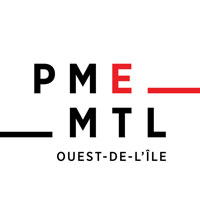A brief by John Burrascano, Industrial Commissioner
I hate to say it, but I told you so! In my last report on Canada’s economic performance dated October 2nd, 2018, I concluded that there were numerous economic factors that could lead to a world-level economic slowdown. Very recent forecasts confirm this slowdown. Other forecasts say the global economy continues to expand even though there exist many factors playing havoc.
The global economy performed very well during 2018. One has to consider that it had to fend off American protectionist policy and closely associated slower Chinese economy, a less impressive Euro Zone GDP and the question of Brexit, a rising interest rate environment and related volatility in the financial markets bringing low bond and stock returns for investors, and the ups and downs of oil prices.

How could it be that we had good overall economic performance at a time when the global economy was afflicted by important turbulence? The answer is, a strong American economy. The global economy remained buoyant in 2018 because the U.S. economy grew from 2.2 % GDP in 2017 to a forecasted 2.9 % in 2018. Projected is 2.7 % growth in GDP for 2019 and a lower GDP rate of 2 % for 2020 (Fédération des Caisses Desjardins, December, 2018: 7).
Peter Coy writes in a recent Bloomberg Businessweek article (2018:3):
‘’So the outlook for 2019 is better than one might expect given the minicrises breaking out left and right. Strong growth in the U.S. isn’t only good for Americans; it’s good for workers in countries that produce goods and services for sale to the U.S. In fact, the U.S. is largely responsible for keeping global growth ticking along at an even pace despite the slowdown of many other major economies.’’
What does all of this translate into for the province of Québec? Québec is essentially following the same trajectory as the global economy. Its real GDP is expected to be lower over coming years; its GDP for 2017 was 2.8 % and projected to be 2.6 % for 2018. It is forecasted to have a 1.8 % performance for 2019 and 1.5 % for 2020 (RBC, December, 2018; 7).
Just as the global economy has benefitted from a strong U.S. economy, Canada and Québec are riding on the coattails of the U.S. economy. Overall, the strong economic performance of the U.S. is contributing to a stronger Canadian economy despite the numerous economic conflicts characterizing Canada-U.S. relations these days, especially, trade relations. Hence, Canada and Québec have maintained steady economic momentum since 2017.
The year 2019 promises to offer good local economic activity levels in a slowing world economy. In terms of how this translates for Montréal’s and West Island’s industrial real estate markets, it looks like this year will be another good year. The West Island and Lachine shall have sustained demand for industrial product. We are picking-up where we left off last year; Colliers International (Q4, 2018) indicates that the West Island’s industrial vacancy rate stood at 2.9 % in Q3, 2018 and 2 % in Q4, 2018. For Lachine, its vacancy rate was 4.7 % in Q3 but increased to 6.9 % in Q4, 2018.
Canada, however, faces some economic challenges in 2019. In 2018 lower oil prices, higher interest rates, a drop in housing sales and lower demand for durable goods, as well as slower job creation showed signs of fissures in Canada’s economy (RBC, 2018, 2-3). For Québec, Fédération des Caisses Desjardins (2018, 10) states that economic vibrancy will decline beginning 2019. The biggest indicator is that consumer spending started slowing in 2018 primarily due to the rise in interest rates. The effect of slowing consumer spending was particularly felt in the residential sector as the demand for housing dropped.
To conclude, I would say that the Montréal and West Island industrial real estate market will perform quite well in 2019. There are, however, many reasons for the overall world economy to slow down and negatively affect the Canadian and Québec economies thereby threatening demand in the industrial real estate sector. It is certainly easier said than done, that all governments must navigate tricky economic waters with much caution in order to avoid an important economic slowdown, or, perhaps much worse, a recession.
Bibliography
Colliers International
Industrial Market Report. Fourth Quarter, 2018
Coy, Peter
‘’A Strong U.S. Economy Will Boost Global Growth in 2019’’ Bloomberg Businessweek, November 13, 2018
Fédération des Caisses Desjardins
‘’The Global Economy Continues to Expand in Spite of Numerous Tensions’’
Economic & Financial Outlook By Desjardins Economic Studies, December 18, 2018, Page 7
Fédération des Caisses Desjardins
‘’Economic Growth Will Slow Down Starting 2019’’
Economic & Financial Outlook By Desjardins Economic Studies, December 18, 2018, Page 10
RBC
‘’The Winds of Change’’
Economic and Financial Market Outlook By RBC Economic Research, December, 2018
PME MTL
Ouest-de-l'Île
1675, Transcanadienne
Bureau 301
Dorval, Québec, H9P 1J1
514 426-2888Follow us
